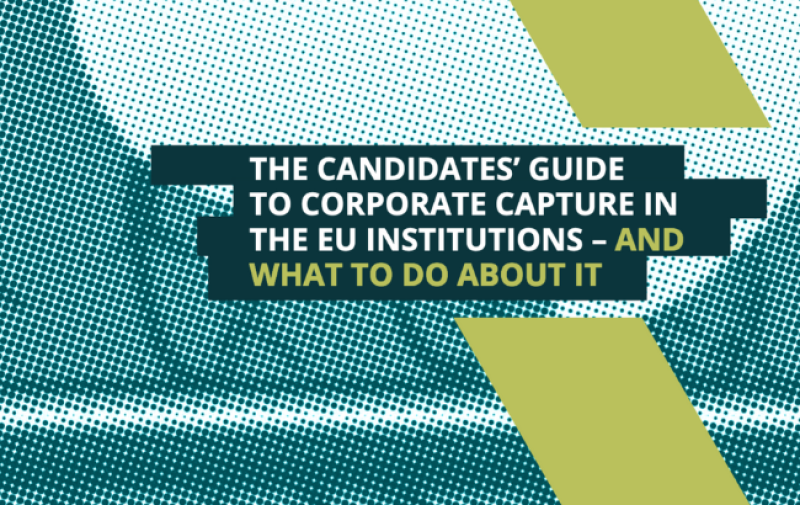Stay always informed
Interested in our articles? Get the latest information and analysis straight to your email. Sign up for our newsletter.

The European elections are gearing up – but one group doesn't need to win votes in order to influence policy-making. That's the 29,000 lobbyists in Brussels, most of whom are working on behalf of corporations. But their work isn’t just about knocking on the doors of politicians. Often they don’t need to - because of all the ways they are invited in to actually shape and even draft EU laws.
Their decisions impact us in myriad ways, including everything from higher cost of living, to worsening climate change.
In time for the elections Corporate Europe Observatory has released a guide to 'Corporate Capture', where you can find out all the different ways that corporate lobbies have derailed public interest legislation in the last term of the European Parliament, such as the rollback of chemicals regulation promised by the Green Deal; the renewal of the pesticide glyphosate; climate action; and AI to name just a few.
Cases include:
1. The European Commission's Energy Platform Advisory Group is dominated by oil and gas industry executives from companies with a vested interest in building more gas infrastructure - largely using public money. These corporate advisers locked us into future fossil fuel use at a time when – from climate change to war – it made sense to be moving away from this dependency.
2. The farmers' anger is a very convenient vehicle for corporate lobbyists, whose use of concerning tactics aren’t making as many headlines. Agribusiness and chemicals giants, for example, have funded supposedly independent science – in reality, paid for research – to verify the 'safety' of their own products. During the last two years, lobbyists for these industries launched an offensive that largely sabotaged planned Green Deal laws to reduce and replace hazardous substances that harm health and ecosystems.
3. Big Tech lobbyists were actively invited in to draft EU legislation governing artificial intelligence. Any proposals for strict rules on problematic AI were swept off the table by industry members, who instead pushed for corporate self-assessments of their technologies.
The guide present a list of concrete lobby regulation and democratic reform demands for the next European Commission and Parliament (“How to defend democratic decision-making from corporate capture”).
“We have been exposing the influence of corporate lobbying on EU decision making since 1997, but have never witnessed a time with more extreme and harmful levels of corporate influence than during the last 12 months. The phenomenon of 'corporate capture' leads to an EU that puts profits before people and planet. The sensation that politics is not there to serve the public also helps to alienate voters and deliver them into the hands of conspiracy thinking, disinformation, and the far right. This situation couldn’t be more dangerous.” Says Olivier Hoedeman, Corporate Europe Observatory research and campaign coordinator.
ENDS
Notes for editors
For media inquiries, please contact
Olivier Hoedeman, Corporate Europe Observatory research and campaign coordinator
olivier@corporateeurope.org ; Tel: +32 474 48 65 45
Marcella Via, Corporate Europe Observatory press officer
media@corporateeurope.org ; Tel: +39 348 420 1435